Yes, Virginia, there really is a right way to hold a chicken. Is it always necessary to hold a chicken correctly? No, but every chicken keeper should be aware of the proper method and use it during exams and bathing. Not only can handling a bird improperly stress the chicken unnecessarily, it can endanger their lives by restricting their ability to inflate their air sacs to breathe. Holding a chicken correctly allows you to examine a chicken easily, keeps them calm and securely supported by their keel, (breast bone) and has the added benefit of keeping the working end of the bird away from you, greatly reducing the chance of getting pooped on. You’re welcome!
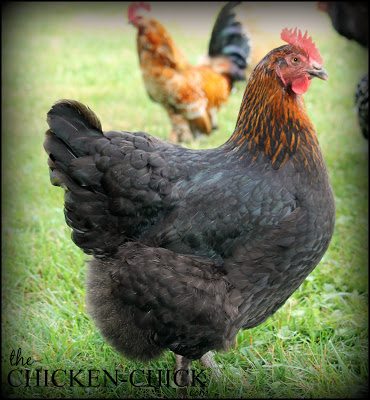
(Black Copper Marans hen)
Most chickens don’t care to be handled, so whenever possible, I recommend handling and examining chickens after dark when they’re half asleep on the roost and unable to see well enough to put up much of a fuss. Wear a headlamp or have a partner holding a flashlight for you while you work.
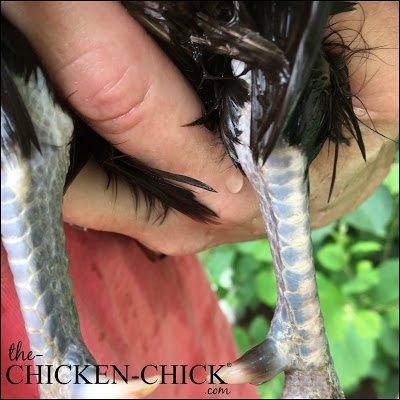
So, here’s how it’s done…with the chicken’s beak facing you and your palm facing up with fingers spread apart, slide your index finger between the legs. Allow the keel bone to rest on your palm and forearm. Wrap your pinky, ring finger and middle finger around one thigh while the thumb holds the other thigh. Ta-da! You’re doing it and the bird can still breathe freely!
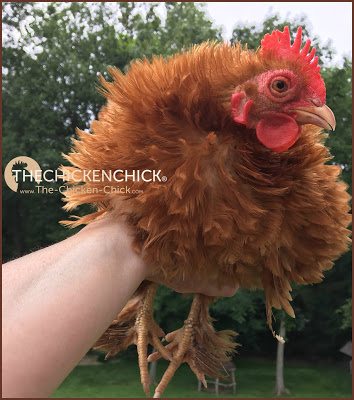
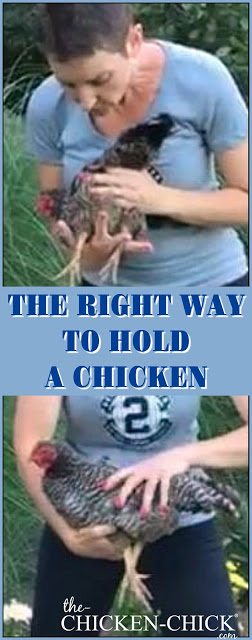
Always supervise children handling chicks. They should be instructed to support the chick in one hand underneath the feet and one hand gently securing the wings, and never squeeze. Small children really shouldn’t attempt to hold large fowl breeds; often they try to hold the chicken by hugging them, which squeezes the bird’s air sacs, preventing the bird from inflating them to breathe.
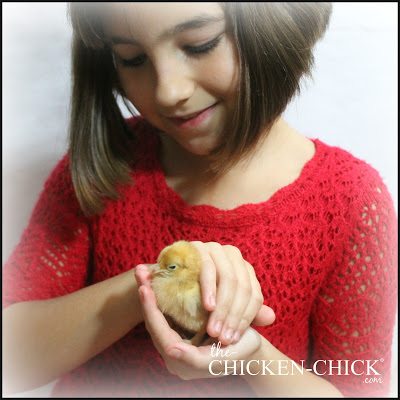
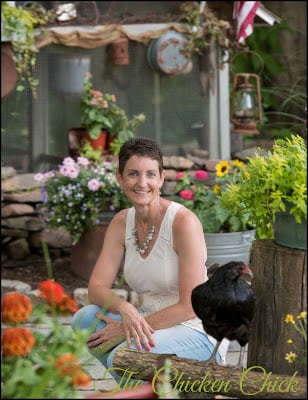
Kathy Shea Mormino
Affectionately known internationally as The Chicken Chick®, Kathy Shea Mormino shares a fun-loving, informative style to raising backyard chickens. …Read on


shop my SPONSORS
Yes, Virginia, there really is a right way to hold a chicken. Is it always necessary to hold a chicken correctly? No, but every chicken keeper should be aware of the proper method and use it during exams and bathing. Not only can handling a bird improperly stress the chicken unnecessarily, it can endanger their lives by restricting their ability to inflate their air sacs to breathe. Holding a chicken correctly allows you to examine a chicken easily, keeps them calm and securely supported by their keel, (breast bone) and has the added benefit of keeping the working end of the bird away from you, greatly reducing the chance of getting pooped on. You’re welcome!

(Black Copper Marans hen)
Most chickens don’t care to be handled, so whenever possible, I recommend handling and examining chickens after dark when they’re half asleep on the roost and unable to see well enough to put up much of a fuss. Wear a headlamp or have a partner holding a flashlight for you while you work.

So, here’s how it’s done…with the chicken’s beak facing you and your palm facing up with fingers spread apart, slide your index finger between the legs. Allow the keel bone to rest on your palm and forearm. Wrap your pinky, ring finger and middle finger around one thigh while the thumb holds the other thigh. Ta-da! You’re doing it and the bird can still breathe freely!


Always supervise children handling chicks. They should be instructed to support the chick in one hand underneath the feet and one hand gently securing the wings, and never squeeze. Small children really shouldn’t attempt to hold large fowl breeds; often they try to hold the chicken by hugging them, which squeezes the bird’s air sacs, preventing the bird from inflating them to breathe.





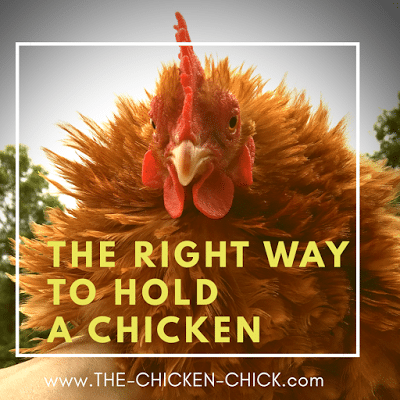

























Love your blogs! Would love the fencing pen for day care!
This would be so helpful to have! The chickens could move and the dogs couldn’t mess with them!
Pick Me! Pick Me! I soooo want this Hen Pen! Of all the give-a-ways…this is the one I could really use.
Thank you, Sandy
Well, that is pretty nifty!! I usually carry the girls facing forward so they can see what we are doing.I have 22 girls & have handled all of them sense they were infants. Grabbing them up & carrying them around hasn’t been a problem. But, I have not had any health issues to where I would need to hold them in the “proper” way to do an in depth inspection. They usually sit or lay there when I need to check something out.Now that I have been educated, I will be able to inspect some of the most important parts… Read more »
This yard looks like exactly what I’ve been missing in my life! :)